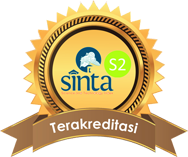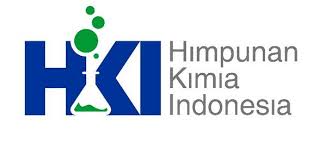Designing a Thermochemistry E-Module Based on the Trait Treatment Interaction Educational Model for Madrasah Aliyah Students
DOI:
https://doi.org/10.15575/jtk.v9i1.30924Keywords:
e-module, planning and carrying out investigations, thermochemistry, trait treatment interactionAbstract
Planning and carrying out investigations (PCOI) among students are still low, and teachers pay less attention to differences in the abilities of each student, so they have not achieved optimal results. This research aims to develop of a chemistry e-module using the trait treatment interaction (TTI) model to increase valid, practical, and effective's PCOI capabilities. TTI is considered an ideal learning model because it can accommodate and value individual differences among students. The research framework employed in this study follows a research and development method with a define, design, development, and disseminate (4D) model. The results indicate that the high validity level achieved an average score of 84.3% in terms of materials, language, and media aspects. The practicality test of the products also received an average score of 86.2%. The product's effectiveness is categorized as very effective, with students' test results averaging 82.3%. The e-module is deemed valid, practical, and effective in enhancing PCOI capabilities.
References
Amalia, Y., Sukarmin, & Suharno. (2020). Science and Engineering Practices (SEPs): Student’s Profile of Planning and Carrying Out Investigations (PCOI). Humanities & Social Sciences Reviews, 8(4), 1116–1122. https://doi.org/10.18510/hssr.2020.84106
Astalini, A., Kurniawan, D. A., Perdana, R., & Kurniasari, D. (2018). Identification of Student Attitudes toward Physics Learning at Batanghari District High School. The Educational Review, USA, 2(9), 475–484. https://doi.org/10.26855/er.2018.09.003
Astutik, S., Mahardika, I. K., Supeno, Indrawati, & Sugianto, F. (2020). Development of reqol (real quest outdoor learning) learning model to improve critical thinking skills (criticall thinking skill) in physics education. IOP Conference Series: Earth and Environmental Science, 485(1). https://doi.org/10.1088/1755-1315/485/1/012111
Aswirna, P. (2018). Application Of Treatment Trait Interaction To Improve Learning Of Chemistry. SHS Web of Conferences, 42, 00114. https://doi.org/10.1051/shsconf/20184200114
Aswirna, P., Fahmi, R., Samad, D., & Tamala, N. (2022). Pengembangan E-Modul Pembelajaran Fisika Berbasis Model Trait Treatment Interaction (TTI) Berbantuan Flip PDF Professional Terhadap Keterampilan Berpikir Kritis. Natural Science, 8(1), 39-49. https://doi.org/10.15548/nsc.v8i1.3637
Aswirna, P., & Harahap, K. (2020). The Android-Based Learning Media Using the Trait Treatment Interaction Model as Implementation of Industrial Era 4.0. Journal of Physics: Conference Series, 1594(1), 0–9. https://doi.org/10.1088/1742-6596/1594/1/012024
Bansu, D. A., Wilujeng, I., & Suyanta, S. (2023). Analysis of Planning Carrying Out Investigation Skills Using the Next Generation Science Standards Learning Framework on Plant Structure and Function Material. Journal of Science Education Research, 9(7), 5353–5356. https://doi.org/10.29303/jppipa.v9i7.2841
Bybee, R. W. (2014). NGSS and the Next Generation of Science Teachers. Journal of Science Teacher Education, 25(2), 211–221. https://doi.org/10.1007/s10972-014-9381-4
Cahyanti, T. O., Sukarmin, S., & Ashadi, A. (2019). Analisis Kemampuan Siswa Dalam Constructing Explanations and Designing Solutions Materi Gerak Dan Gaya. EDUSAINS, 11(2), 163172. https://doi.org/10.15408/es.v11i2.10674
Crosswaite, M., & Asbury, K. (2019). Teacher beliefs about the aetiology of individual differences in cognitive ability, and the relevance of behavioural genetics to education. British Journal of Educational Psychology, 89(1), 95–110. https://doi.org/10.1111/bjep.12224
Duncan, R. G., & Cavera, V. L. (2015). DCIs, SEPs, and CCs, oh my!: Understanding the three dimensions of the NGSS. The Science Teacher, 82(7), 67. Retrieved from https://static.nsta.org/pdfs/samples/tst1507_67.pdf
Duschl, R. A., & Bybee, R. W. (2014). Planning and carrying out investigations: an entry to learning and to teacher professional development around NGSS science and engineering practices. International Journal of STEM Education, 1(1), 1–9. https://doi.org/10.1186/s40594-014-0012-6
Fahmi, R., Tusa'diah, H., Aswirna, P., & Sabri, A. (2020). Pengembangan Keterampilan Kolaborasi Melalui Penerapan Modul Interaktif Berbasis TTI. Natural Science: Jurnal Penelitian Bidang IPA dan Pendidikan IPA, 6(2), 2477–6181. Retrieved from https://scholar.uinib.ac.id/id/eprint/539/1/14-Pengembangan%20keterampilan%20kolaborasi%20melalui%20penerapan%20modul%20interaktif%20berbasis%20TTI.pdf
Firmansyah, F. (2021). Analisis Perbedaan Individual dan Implikasi dalam Proses Pembelajaran. Jurnal Ilmiah Universitas Batanghari Jambi, 21(3), 1317-1322. https://doi.org/10.33087/jiubj.v21i3.1695
Galitskaya, V., Batzaka, M., Kasapoglou, E., & Drigas, A. (2022). Giftedness: A Three-Way Approach and the role of ICTs. Technium Soc. Sci. J., 30, 238. https://doi.org/10.47577/tssj.v58i1
Harris, K., Sithole, A., & Kibirige, J. (2017). A Needs Assessment for the Adoption of Next Generation Science Standards (NGSS) in K-12 Education in the United States. Journal of Education and Training Studies, 5(9), 54-62. https://doi.org/10.11114/jets.v5i9.2576
Hasibuan, A. T., & Prastowo, A. (2019). Konsep pendidikan abad 21: kepemimpinan dan pengembangan sumber daya manusia SD/MI. MAGISTRA: Media Pengembangan Ilmu Pendidikan Dasar dan Keislaman, 10(1), 26–50. https://doi.org/10.31942/mgs.v10i1.2714
Hume, A., & Coll, R. (2008). Student experiences of carrying out a practical science investigation under direction. International Journal of Science Education, 30(9), 1201–1228. https://doi.org/10.1080/09500690701445052
Kubat, U. (2018). Identifying the individual differences among students during learning and teaching process by science teachers. International Journal of Research in Education and Science, 4(1), 30–38. Retrieved from https://files.eric.ed.gov/fulltext/EJ1169888.pdf
Lee, J. (2013). Development of an adaptive learning system based on Task-Trait- Treatment interaction theory. International Journal of Software Engineering and Its Applications, 7(2), 49–66. Retrieved from https://citeseerx.ist.psu.edu/document?repid=rep1&type=pdf&doi=b08c74c32767e901362753129684a491f09f09ed
Logan, R. M., Johnson, C. E., & Worsham, J. W. (2021). Development of an Elearning module to facilitate student learning and outcomes. Teaching and Learning in Nursing, 16(2), 139–142. https://doi.org/10.1016/j.teln.2020.10.007
Magdalena, I., Prabandani, R. O., Rini, E. S., Fitriani, M. A., & Putri, A. A. (2020). Analisis pengembangan bahan ajar. Nusantara, 2(2), 180-187. Retrieved from https://ejournal.stitpn.ac.id/index.php/nusantara/article/view/805
Maison, M., Busiarti, R. S., Samosir, S. C., & Nasih, N. R (2020). Differences of Science Process Skills Pre-Service Teachers on Physics Education and Biology Education. Humanities & Social Sciences Reviews, 8(2), 555–563. https://doi.org/10.18510/hssr.2020.8263
Malik, A., Al-Hanafi, M. A., Chusni, M. M., & Nugraha, A. R. (2023). Development of CORE-based Electronic-modules to Improve Students’ Problem-Solving Skills. Jurnal Penelitian Pendidikan IPA, 9(8), 6415-6424. https://doi.org/10.29303/jppipa.v9i8.3172
Mollon, J. D., Bosten, J. M., Peterzell, D. H., & Webster, M. A. (2017). Individual differences in visual science: What can be learned and what is good experimental practice? Vision Research, 141, 4–15. https://doi.org/10.1016/j.visres.2017.11.001
Mutmainnah, M., Aunurrahman, A., & Warneri, W. (2021). Efektivitas penggunaan e-modul terhadap hasil belajar kognitif pada materi sistem pencernaan manusia di Madrasah Tsanawiyah. Jurnal Basicedu, 5(3), 1625-1631. https://doi.org/10.31004/basicedu.v5i3.952
Nacaroğlu, O., & Bektaş, O. (2023). The effect of the flipped classroom model on gifted students’ self-regulation skills and academic achievementitle. Thinking Skills and Creativity, 47, 101244. https://doi.org/10.1016/j.tsc.2023.101244
Nurhasnah, N., & Sari, L. A. (2020). E-modul fisika berbasis contextual teaching and learning menggunakan aplikasi Kvisoft Flipbook Maker untuk meningkatkan literasi sains peserta didik SMA/MA kelas XI. Natural Science, 6(1), 29-40. Retrieved from https://ejournal.uinib.ac.id/jurnal/index.php/naturalscience/article/view/1554
Octavia, S. A. (2020). Model-model Pemelajaran. Deepublish.
Pratiwi, D., Larasati, A. N., & Berutu, I. L. (2022). Pentingnya Inovasi Media Pembelajaran Berbasis Digital di Abad-21. BEST Journal (Biology Education, Sains and Technology), 5(2), 211-216. Retrieved from https://jurnal.uisu.ac.id/index.php/best/article/view/5685
Puspitasari, A. D. (2019). Penerapan media pembelajaran fisika menggunakan modul cetak dan modul elektronik pada siswa SMA. JPF (Jurnal Pendidikan Fisika) Universitas Islam Negeri Alauddin Makassar, 7(1), 17-25. Retrieved from http://journal.uin-alauddin.ac.id/index.php/PendidikanFisika
Sackett, P. R., Lievens, F., Van Iddekinge, C.H., & Kuncel, N.R. (2017). Individual differences and their measurement: A review of 100 years of research. Journal of Applied Psychology, 102(3), 254–273. https://doi.org/10.1037/apl0000151
Sani, D. F., Nafiah, H., Andani, V. R., & Projosantoso, A. K. (2018). Developing of NGSS-oriented Teaching Materials in the Bundle of Matter and Its Interactions for High School Chemistry Classroom. 5th ICRIEMS Proceedings, 19–24. Retrieved from https://seminar.uny.ac.id/icriems/sites/seminar.uny.ac.id.icriems/files/proceeding2018/CE03_Dyah%20Fitriani%20Sani.pdf
Sugiyono. (2013). Metodologi Penelitian Kuantitatif, Kualitatif dan R&D. Alfabeta.
Sukarmin, S., Sarwanto, S., Sunarno, W., Sunarya, R., Putri, M., Priharti, F., & Arifin, Z. (2021). Students’ Profile of Science and Engeneering Practices (SEPs) in Newton Law of Motion. Italienisch, 11(2), 659–666. Retrieved from http://repository.idu.ac.id/3108/2/Dokumen%20Defense%20Strategy%20Policy%20through%20Revitalization%20of%20East%20Surabaya%20Shipping%20Lanes.pdf
Tuna, A., & Kaçar, A. (2013). The Effect Of 5E Learning Cycle Model in Teaching Trigonometry on Students’ Academic Achievement and The Permanence of Their Knowledge. International Journal on New Trends in Education and Their Implications, 4(1), 73–87. Retrieved from https://citeseerx.ist.psu.edu/document?repid=rep1&type=pdf&doi=de70fe413caedcd334ac57adca26288caf2978be#page=80
Wang, K. D., Cock, J. M., Käser, T., & Bumbacher, E. (2023). A systematic review of empirical studies using log data from open-ended learning environments to measure science and engineering practices. British Journal of Educational Technology, 54(1), 192–221. https://doi.org/10.1111/bjet.13289
Windriyana, G., Wilujeng, I., Prodjosantoso, A., & Suryadharma, I. (2019, July). NGSS: A Standard to Improve Planning Carrying Out Investigation Skill and Crosscutting Concept. In 6th International Conference on Educational Research and Innovation (ICERI 2018) (pp. 58-62). Atlantis Press. https://doi.org/10.2991/iceri-18.2019.65
Wu, H. K., & Hsieh, C. E. (2006). Developing sixth graders' inquiry skills to construct explanations in inquiry-based learning environments. International Journal of Science Education, 28(11), 1289–1313. https://doi.org/10.1080/09500690600621035
Zagoto, M. M., Yarni, N., & Dakhi, O. (2019). Perbedaan individu dari gaya belajarnya serta implikasinya dalam pembelajaran. Jurnal Review Pendidikan dan Pengajaran (JRPP), 2(2), 259-265. https://doi.org/10.31004/jrpp.v2i2.481
Downloads
Published
How to Cite
Issue
Section
Citation Check
License
Authors who publish with this journal agree to the following terms:
- Authors retain copyright and grant the journal right of first publication with the work simultaneously licensed under a Creative Commons Attribution-ShareAlike that allows others to share the work with an acknowledgement of the work's authorship and initial publication in this journal.
- Authors are able to enter into separate, additional contractual arrangements for the non-exclusive distribution of the journal's published version of the work (e.g., post it to an institutional repository or publish it in a book), with an acknowledgement of its initial publication in this journal.
- Authors are permitted and encouraged to post their work online (e.g., in institutional repositories or on their website) prior to and during the submission process, as it can lead to productive exchanges, as well as earlier and greater citation of published work (See The Effect of Open Access).









